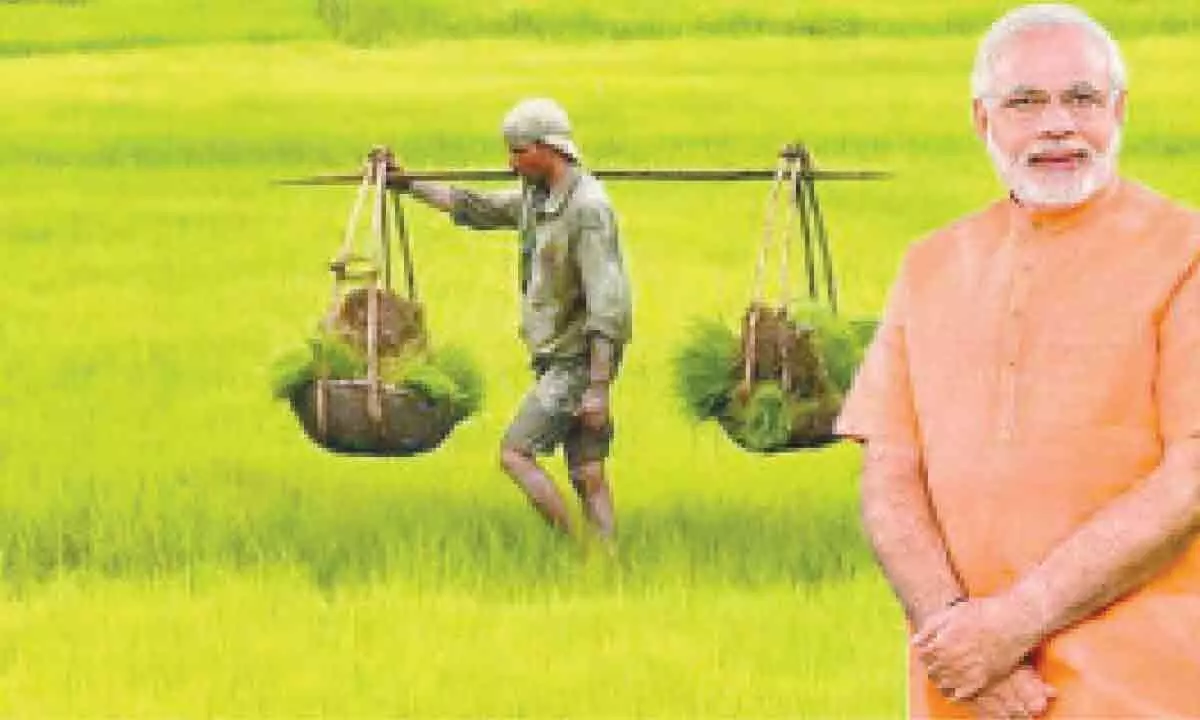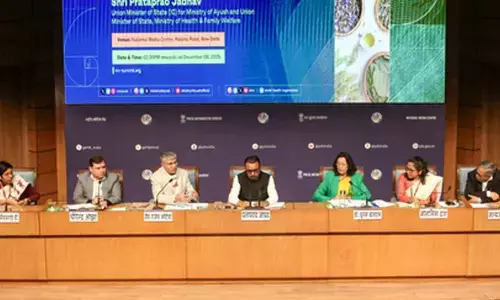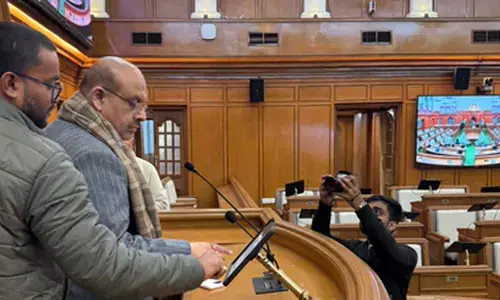New Delhi: Narendra Modi progressive efforts for Pb’s farmers, ecology

The idea is to help farmers diversify away from wheat and paddy, both water-intensive crops, and to cushion and monetarily secure their transition for the next five years
New Delhi : During the talks between the Centre and the farm unions from Punjab on February 18, the Narendra Modi government proposed a unique solution where it was willing to enter into an agreement with the farmers of Punjab on five crops -- cotton, maize, tur, urad, masur.
The idea was to help farmers diversify away from wheat and paddy, both water-intensive crops, and to cushion and monetarily secure their transition for the next five years. The agreement was to be done through government agencies (CCI, NAFED, etc.). There was no upper limit on the quantum of crops that would have been procured.
From an ecological perspective, this was ideal for Punjab, where the groundwater levels have alarmingly depleted. Of the 138 assessed blocks in Punjab, stated in the Dynamic Groundwater Resources Assessment of India - 2017 report, 109 are over-exploited, two as critical, five as semi-critical, and only 22 as safe.
The total annual groundwater recharge of the state was assessed as 23.93 bcm (billion cubic metres), annual extractable groundwater resource was 21.59 bcm. Still, the annual groundwater extraction was at 35.78 bcm, putting the extraction at 166 per cent, the highest for any state in India. Even for Rajasthan, it’s less than 140 per cent.
For a small farmer, the cost of extracting groundwater has increased in the last few years, and therefore, by moving away to crops that were not water-intensive, the input costs would have reduced.
Punjab’s majority area is under wheat and paddy cultivation (85 per cent in 2020-21). Therefore an ecosystem (market, buyers, logistics, input supplies, etc.) for cotton, pulses, and maize is not as significant, therefore warranting government support for the farmers, as they entered into a new phase of agriculture.
In terms of area under cultivation, Maize makes up for 1.5 per cent, Cotton is 3.2 per cent, and pulses merely 0.4 per cent. For farmers, moving towards these crops would have unlocked new markets and buyers, especially in the private sector, thus allowing them more options to sell their produce, even to the private players, at will.
By rejecting the offer from the Centre, the farm unions have staked the long-term interests of Punjab’s farmers for their short-term interests. By not allowing them to move away from wheat and paddy, not only are these unions barring farmers from exploring new markets, but also adding to the groundwater stress that will push up the input costs for the farmers. Eventually, it could even make some belts unfit for paddy and wheat cultivation in a few years, further hurting the small and marginal farmers.














